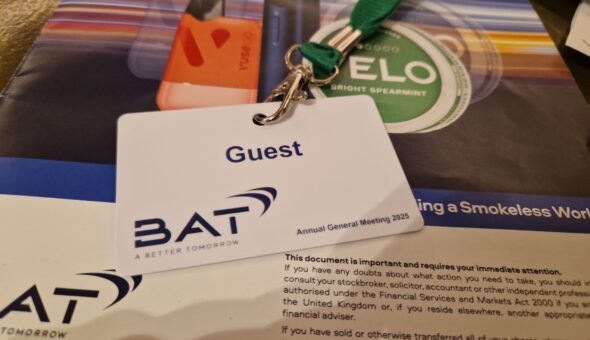Policy-makers need to ‘wise-up’ to the methods used by the tobacco industry in attempts to influence marketing regulations, according to the authors of a new study published today.
The systematic review, published in PLOS ONE, from researchers in our Tobacco Control Research Group , looked at evidence from around the world to identify the tactics and arguments tobacco companies use to influence and prevent policy aimed at regulating the marketing of tobacco.
Commenting on the research findings, author Professor Anna Gilmore, of the Tobacco Control Research Group and UK Centre for Tobacco & Alcohol Studies, said: “The tobacco companies have a diverse repertoire of tactics and arguments they repeat time and time again to prevent policies which protect the public from its deadly products. Governments around the world need to wise up to when the industry is lying and protect policy development from the vested interests of the tobacco companies.”
This comes amidst the lengthy delay to new plain packaging legislation in the UK. Last year, the government appeared to distance itself from standardised packaging, saying further evidence was needed to show whether it would be effective. As part of this evidence review, Sir Cyril Chantler is currently looking at the likely effect on public health, particularly for children, if standardised tobacco packaging is introduced, with findings expected in mid-March.
The research will also help policy-makers in low and middle income countries who are fighting an uphill battle against big tobacco companies to introduce regulations under the World Health Organisation’s Framework Convention on Tobacco Control (FCTC).
Study author Emily Savell added: “The WHO’s Framework Convention on Tobacco Control recognises the significant influence that tobacco industry marketing has on smoking prevalence and initiation, and recommends that countries comprehensively ban tobacco advertising, promotion and sponsorship. Understanding how the tobacco industry attempts to shape, delay or stop these policies is therefore vital.”
Significantly the paper found that the same tactics and arguments are being used across multiple jurisdictions, showing that the tobacco industry is repeating its activities in high, middle, and low income countries around the world. This suggests that the tobacco industry believes that what works best to influence policy-makers in developed countries will have a similar effect on policy-makers in developing countries. Importantly the paper also identifies a broader range of corporate tactics and arguments than previous studies have suggested.
The researchers found that whilst tobacco industry arguments made to oppose or derail policy appear diverse, on closer inspection they point to a common theme: that the benefits of health reform are marginal whilst the costs to society are likely to be significant. They identify common arguments put forward by the tobacco industry to oppose public policy interventions including:
- That a proposed policy will have negative unintended consequences – for example for the economy or public health.
- That there is insufficient evidence that a proposed policy will work.
- That there are legal barriers to regulation – including that it infringes the legal rights of a company.
- That a proposed regulation is unnecessary because the industry does not market to young people and / or adheres to a voluntary code.
The paper also highlights tobacco industry reliance on third parties, making it difficult for the public and policy-makers to assess the credibility and motivation behind efforts to shape the political agenda.
Although over half of the evidence studied for this new systematic review focused on activity in North America, Europe and Australasia, the geographic base was far more diverse than some previous reviews of industry activity.
Click here to access a copy of this systematic review.
Notes on the paper
- This work is supported by the National Cancer Institute of the United States National Institutes of Health [Grant Number R01CA160695], and the Economic and Social Research Council [Grant Number ES/I900284/1]. The funders played no role in the study design, analysis and interpretation of data, nor writing of the report or the decision to submit the article for publication. The content is solely the responsibility of the authors and does not necessarily represent the views of the funders.
- The UK Centre for Tobacco and Alcohol Control Studies (UKCTAS), is a strategic partnership comprising 13 University teams working on tobacco and alcohol research. UKCTAS is one of six UK Centres for Public Health Excellence funded by the UK Clinical Research Collaboration – comprising the Economic & Social Research Council, The British Heart Foundation, Cancer Research UK, the National Institute for Health Research and the Medical Research Council. More information on the Centre can be found at .
- The systematic review included 48 articles. Each article made reference to tobacco industry efforts to influence marketing regulations; supported claims with verifiable evidence; were written in English; and concerned the period 1990-2013.
If you enjoyed this you might also be interested in:
Study finds ‘serious flaws’ in EU report on illicit tobacco – January 2014



